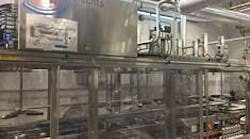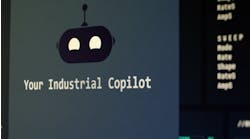In September, Tim Alexander presents “Deschutes Boosts Quality, Throughput with Predictive Analytics” at the 2018 Smart Industry Conference. Today the brewery-operations technology manager previews his presentation and shares his thoughts on data in the world of craft beer, boosting consistency and speeding processing times. Take a look...
Deschutes' Tim Alexander
Smart Industry: Describe your role in this era of digital transformation.
Tim: I oversee operations technology at the brewery. This includes process automation, our process historian, operational interactions and integrations with the company ERP system, databases for collecting/organizing/storing quality and recipe data, and creating reports and combining data as required from all of these systems. This position did not even exist at the brewery until January of this year, so really this role was created by the era of digital transformation. Still, it continues to evolve quickly as we have more and more data from more and more systems, along with more and more users who want to combine the data from these systems in new and interesting ways.
Tim: We are using predictive analytics to help predict when the key sampling points will happen in our fermentations. This helps us take fewer manual samples and hit these points more accurately, which in turn keeps our fermentations fast and the resulting beer consistent. Using these predictions has helped us shave about 4% of the time off our fermentations, while at the same time having less non-conforming beer. It was a relatively cheap way to expand our capacity by 4%.
Smart Industry: Describe you mission of "increasing the engineering quotient of a company's production processes."
Tim: Our mission in the brewery-operations-technology department is to help our employees make the most efficient and consistent beer possible by giving them the data they need in the way they need it at the time they need it. This translates to increasing the engineering quotient of our production processes, as we are trying to perform some of these engineering functions on the fly so that the people on the floor can make the best decisions even without technical expertise or a lot of data-crunching.
Smart Industry: How does data science speed your processing time?
Tim: The fermentations are a great example. We can save up to 72 hours on a fermentation (compared toone that goes wrong). As mentioned above, we have saved 4% of our time spend in fermentations. Additionally, being able to compare batches quickly and easily across all areas of the plant has been great for finding and fixing problems, which helps us reduce issues and waste, enabling us to avoid time-loss and beer-loss through all of our processes.
Smart Industry: Where does the brewing industry sit among other fields regarding digitalization?
Tim: The brewing industry (and specifically the craft-brewing industry) is lagging behind a little in the digital revolution. It is a craft, so there is a lot of value and emphasis placed on getting experience and knowledge from tactile involvement with the process. However, there is a wide range of comfort with technology in the industry; I think brewers like Deschutes are doing similar things to some of the other cutting-edge efforts in other industries, and I think by seeing what is possible, more craft brewers are realizing that technology does not replace the brewer, but rather helps the brewer perform his craft at a higher level.
Tim: I would say the average Deschutes drinker does not know of our attention to data, except to say that we continue to get market feedback that beer drinkers generally feel that any beer we put out will be a solid example of the style on the label and will be free of off-flavors. This is probably the best proof that our methods are working. The average drinker should not have to understand the attention to data or the data itself unless this really interests him (then we are happy to talk about it). As long as he has a general notion of the result, which is consistent, high-quality beer, we are happy.







